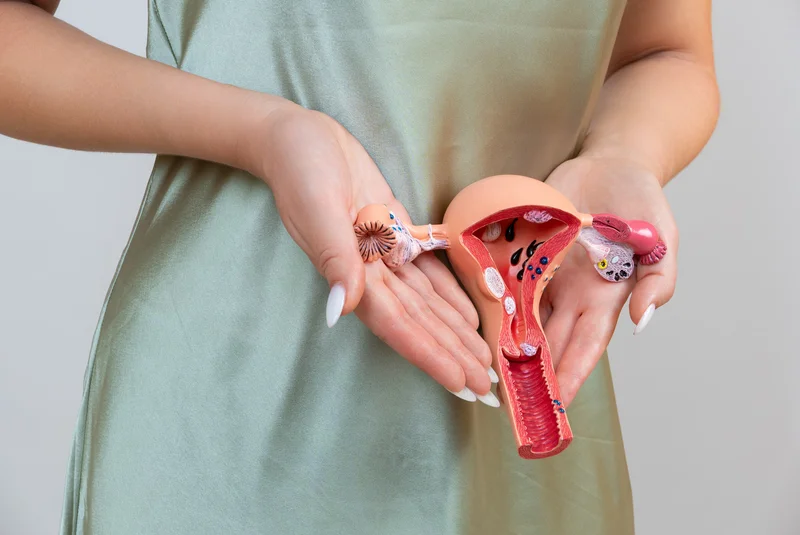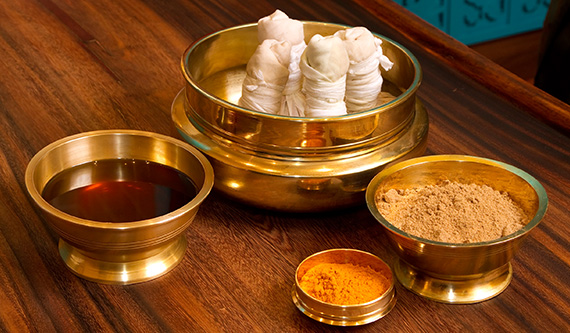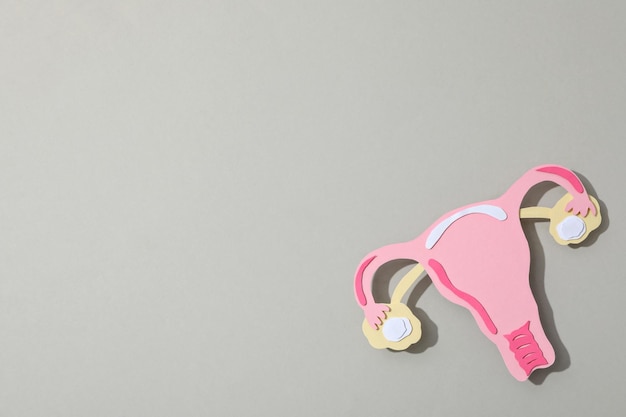Ask Ayurvedic doctor a question and get a consultation online on the problem of your concern in a free or paid mode. More than 2,000 experienced doctors work and wait for your questions on our site and help users to solve their health problems every day.
Uterine Prolapse Treatment in Ayurveda – Natural Remedies for Strengthening and Rejuvenating the Uterus

Introduction to Uterine Prolapse and Ayurveda
Uterine prolapse is a condition in which the uterus descends from its normal position into the vaginal canal, often causing discomfort, urinary problems, and pelvic pressure. This condition typically occurs due to weakened pelvic floor muscles and ligaments, often as a result of childbirth, aging, or hormonal imbalances. Ayurveda offers a holistic approach to uterine prolapse by focusing on strengthening the reproductive organs, improving pelvic muscle tone, and addressing underlying imbalances in the Vata dosha, which governs movement in the body. Ayurvedic treatments aim to restore the structural integrity of the pelvic region and improve overall health, thereby alleviating the symptoms associated with uterine prolapse.
Historical Roots & Ayurvedic Significance
In Ayurvedic medicine, uterine prolapse is considered a result of an imbalance in the Vata dosha, particularly an excess of Apana Vata, the subdosha responsible for downward movement and elimination. A weakened or imbalanced Rakta (blood) and Mamsa (muscle) tissue can also contribute to the condition. Ayurveda views the uterus (known as Yonidha) as a central organ in a woman's health, and it is essential to maintain its strength and balance to support overall reproductive health. Ayurvedic texts suggest that uterine prolapse can be prevented and treated through a combination of herbal remedies, dietary adjustments, and strengthening exercises.
Key Ayurvedic Approaches to Uterine Prolapse Treatment
Ayurveda offers a multi-faceted approach to managing uterine prolapse, focusing on strengthening the pelvic muscles, balancing the doshas, and promoting overall wellness. Here are some key Ayurvedic treatments and practices to address uterine prolapse:
1. Herbal Remedies for Uterine Prolapse
Several herbs in Ayurveda are known for their ability to strengthen the pelvic muscles, tone the uterus, and balance the reproductive system. These herbs include:
- Ashoka (Saraca asoca): Ashoka is a powerful uterine tonic known for its ability to strengthen and rejuvenate the uterine muscles. It is often used in Ayurvedic formulations for treating prolapse, irregular menstruation, and other female reproductive health issues.
- Lodhra (Symplocos racemosa): Lodhra is considered an effective herb for toning the uterus and promoting its overall health. It is especially useful for controlling excessive uterine bleeding and strengthening the ligaments that support the uterus.
- Shatavari (Asparagus racemosus): Shatavari is a well-known herb for promoting reproductive health and balancing hormones. It supports the uterine muscles, enhances fertility, and helps rejuvenate the reproductive system after childbirth or other stressors.
- Guduchi (Tinospora cordifolia): Known for its detoxifying properties, Guduchi helps strengthen the body's tissues, including the uterine muscles. It is also known for supporting the immune system and promoting overall health.
- Triphala: This combination of three fruits (Amalaki, Haritaki, and Bibhitaki) is often used in Ayurveda to cleanse the body, improve digestion, and promote tissue regeneration, which can help with uterine health and prolapse.
2. Ayurvedic Oil Massages and External Applications
Ayurvedic oil therapies, particularly abdominal massages, can help tonify the pelvic region and improve circulation to the uterus and surrounding tissues. Oils like Sesame oil, Mustard oil, or Mahanarayan oil are commonly used for their warming and nourishing effects. Massaging the lower abdomen in circular motions can help stimulate blood flow, strengthen the muscles, and reduce the downward pressure caused by uterine prolapse.
- Uttar Basti (Vaginal Oil Injections): This Ayurvedic technique involves the gentle insertion of medicated oils or herbal formulations into the vaginal canal. The oils help lubricate the tissues, tone the uterine muscles, and restore balance to the reproductive system.
3. Lifestyle Modifications and Exercises
In Ayurveda, physical strength and flexibility play a vital role in treating uterine prolapse. Several lifestyle changes and exercises can help:
- Pelvic Floor Exercises (Kegel Exercises): These exercises are crucial for strengthening the pelvic muscles and preventing further prolapse. Regular practice of Kegels can help tone and tighten the pelvic muscles, supporting the uterus in its proper position.
- Yoga for Uterine Prolapse: Certain yoga poses can help strengthen the pelvic region, improve circulation, and tone the uterus. Poses like Viparita Karani (Legs-Up-the-Wall Pose), Setu Bandhasana (Bridge Pose), and Supta Baddha Konasana (Reclining Bound Angle Pose) can help relax the pelvic muscles, stimulate blood flow, and improve posture.
- Avoiding Heavy Lifting: It is essential to avoid heavy lifting and activities that put excessive strain on the pelvic region, as this can worsen prolapse. Ayurveda emphasizes gentle movement and proper body alignment to prevent further damage.
4. Dietary Adjustments for Uterine Prolapse
In Ayurveda, diet plays a key role in balancing the doshas and supporting overall health. For uterine prolapse, dietary recommendations include:
- Cooling, Hydrating Foods: Eating foods that are light, hydrating, and easy to digest helps maintain balance and prevent the aggravation of Pitta dosha. Foods such as cucumbers, coconut, leafy greens, and yogurt are beneficial.
- Nourishing Foods: Ayurveda recommends consuming foods that nourish the reproductive system, such as ghee, sesame seeds, almonds, and dairy products. These help support tissue regeneration and provide the necessary nutrients for uterine health.
- Avoid Processed Foods: Processed, salty, and oily foods can aggravate Vata dosha, which contributes to dryness and weakness in the pelvic region. Avoiding these foods can help restore strength to the reproductive system.
5. Panchakarma Therapy
Panchakarma, a detoxification therapy in Ayurveda, can help eliminate toxins (Ama) from the body and restore balance. Specific therapies that may be useful for uterine prolapse include:
- Virechana (Purgation): This therapy helps eliminate excess Pitta dosha and toxins from the body, promoting the regeneration of tissues and improving the health of the reproductive system.
- Basti (Medicated Enema): Basti helps balance Vata dosha and strengthens the pelvic muscles. It is considered an effective treatment for uterine prolapse, as it nourishes the tissues and promotes overall health.
- Swedana (Herbal Steam Therapy): Swedana promotes relaxation, improves circulation, and helps detoxify the body. It can be used as part of a holistic treatment plan to support uterine health.
How Ayurveda Addresses Uterine Prolapse
Ayurvedic treatment for uterine prolapse addresses the underlying causes of the condition by balancing the doshas, strengthening the pelvic muscles, and improving overall vitality. By incorporating herbal remedies, dietary adjustments, and lifestyle modifications, Ayurveda offers a holistic approach to managing uterine prolapse, ensuring long-term health and well-being for women.
Recommended Dosage & How to Use Ayurvedic Remedies for Uterine Prolapse
The dosage and use of Ayurvedic remedies for uterine prolapse will vary based on the individual’s health condition and constitution. It is essential to consult with an Ayurvedic practitioner for personalized guidance. However, general guidelines include:
- Herbal Remedies: The dosage of herbs like Ashoka, Shatavari, and Guggulu will typically range from 500 mg to 1 gram per day, depending on the form (tablet, powder, or decoction).
- Oil Massage: Use 1-2 teaspoons of medicated oil for abdominal massage, performing it 2-3 times a week for best results.
- Yoga and Exercises: Practice pelvic floor exercises and specific yoga poses for 10-15 minutes daily to strengthen the pelvic muscles.
Potential Side Effects & Precautions
While Ayurvedic treatments for uterine prolapse are generally safe, some precautions should be taken:
- Herbal Sensitivity: Some individuals may be sensitive to specific herbs, especially if they have allergies. Always start with a lower dose and gradually increase it.
- Pregnancy: Women who are pregnant or planning to conceive should consult with an Ayurvedic practitioner before using herbal remedies or undergoing Panchakarma treatments.
- Consult a Professional: It is essential to consult with a qualified Ayurvedic practitioner before beginning any treatment to ensure it is appropriate for your health needs.
Frequently Asked Questions for Uterine Prolapse Treatment in Ayurveda
What causes uterine prolapse in Ayurveda?
In Ayurveda, uterine prolapse is caused by an imbalance in Vata dosha, particularly Apana Vata, which governs downward movement in the body. Weak pelvic muscles, excessive strain, or trauma from childbirth can also contribute to uterine prolapse.
How does Ayurveda treat uterine prolapse?
Ayurveda treats uterine prolapse through herbal remedies, dietary adjustments, yoga, pelvic exercises, and Panchakarma therapies to strengthen the pelvic muscles, balance the doshas, and improve uterine health.
Can Ayurvedic herbs help with uterine prolapse?
Yes, Ayurvedic herbs like Ashoka, Lodhra, and Shatavari are beneficial for toning the uterus, strengthening the pelvic muscles, and improving reproductive health.
What lifestyle changes are recommended for uterine prolapse?
Lifestyle changes such as avoiding heavy lifting, practicing pelvic floor exercises, maintaining proper posture, and managing stress are essential for supporting uterine health in Ayurveda.
How long does it take to treat uterine prolapse with Ayurveda?
The duration of treatment depends on the severity of the condition. Consistent use of Ayurvedic remedies, combined with lifestyle modifications, may show noticeable improvements within 4-6 weeks.
Is Ayurveda safe for treating uterine prolapse?
Yes, Ayurveda offers a safe and natural approach to managing uterine prolapse. However, it is important to follow the guidance of an Ayurvedic practitioner to ensure safe and effective treatment.
Can yoga help with uterine prolapse?
Yes, specific yoga poses can help strengthen the pelvic muscles, improve circulation, and support uterine health. Poses like Bridge Pose and Legs-Up-the-Wall Pose are particularly beneficial.
Conclusion & Expert Insights
Uterine prolapse is a common condition that can be effectively managed with Ayurvedic remedies. By addressing the root causes of the condition through herbal remedies, dietary changes, lifestyle adjustments, and specialized exercises, Ayurveda offers a holistic and natural approach to restoring uterine health. Women can find relief from symptoms and prevent further prolapse by following a comprehensive Ayurvedic treatment plan tailored to their unique constitution and health needs.
References & Further Reading
- Lad, V. (2002). Ayurveda: The Science of Self-Healing.
- Sharma, P.V. (1995). Charaka Samhita.
- Journal of Ayurveda and Integrative Medicine for research on uterine health and prolapse treatments.



